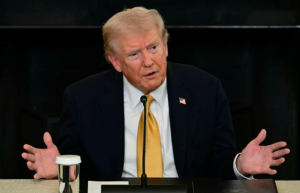In the latest sign that the Obama administration is willing to respect states' rights regarding legal marijuana, the federal government formally asked the Supreme Court Wednesday to dismiss a lawsuit filed by Nebraska and Oklahoma that seeks to block Colorado's law that legalized recreational pot.
Nebraska and Oklahoma argue that Colorado's marijuana legalization law has resulted in a flood of people legally buying cannabis in Colorado and then illegally crossing state lines, reported Reuters.
The two states say they are worried about the health and safety of children and have sued Colorado and asked the Supreme Court to block Colorado's legal marijuana system, noting that the plant remains illegal under federal law. They argue that Colorado's system violates the Controlled Substances Act and federal interstate commerce laws, according to USA Today.
Colorado asked the Supreme Court to toss the lawsuit, and this fall, the court asked for the federal government's opinion on the matter.
Solicitor General Donald Verrilli Jr. filed a response on Wednesday, arguing that the Supreme Court should not intervene, reported USA Today.
"The motion for leave to file a bill of complaint should be denied because this is not an appropriate case for the exercise of this Court's original jurisdiction," the brief says. "Entertaining the type of dispute at issue here - essentially that one state's laws make it more likely that third parties will violate federal and state law in another state - would represent a substantial and unwarranted expansion of this court's original jurisdiction."
Verrilli argued that the Supreme Court does not usually settle disputes between states unless the state entities themselves are at odds, whereas in this instance, it is private citizens who are breaking the laws in Nebraska and Oklahoma, not the state of Colorado. He added that Nebraska and Oklahoma have failed to demonstrate that Colorado has directed citizens to carry marijuana over state lines, according to TIME.
"Nebraska and Oklahoma essentially contend that Colorado's authorization of licensed intrastate marijuana production and distribution increases the likelihood that third parties will commit criminal offenses in Nebraska and Oklahoma by bringing marijuana purchased from licensed entities in Colorado into those states," Verrilli wrote. "But they do not allege that Colorado has directed or authorized any individual to transport marijuana into their territories in violation of their laws. Nor would any such allegation be plausible."
© 2025 HNGN, All rights reserved. Do not reproduce without permission.








